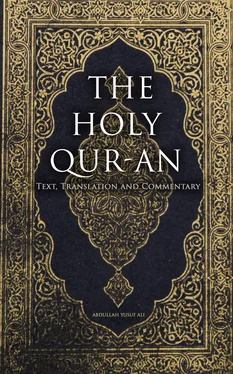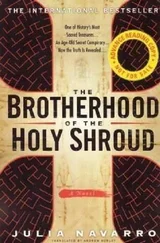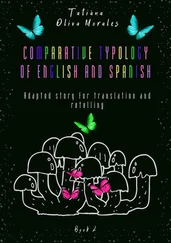1 ...6 7 8 10 11 12 ...31 C. 31.—The veil was lifted from the Chosen One’s eyes,
And his soul for a moment was filled with divine
Ecstasy. . .When this passed,
And he returned to the world of Time
And Circumstance and this world of Sense,
He felt like one whose eyes had seen
A light of dazzling beauty, and felt dazed
On his return to common sights.
The darkness now seemed tenfold dark;
The solitude seemed tenfold empty;
The Mount of Ḥiraa, henceforth known
As the Mountain of Light, the mere shell
Of an intense memory. Was it a dream?
Terror seized his limbs and he straightway sought
Her who shared his inmost life,
And told her of his sense of exaltation,
And the awful void when the curtain closed.
C. 32.—She understood, rejoiced, and comforted him;
Gave strength to his shaken senses;
Wrapped up in warmth his shivering body,
Unused as yet to bear the strain and stress
Of an experience rare to mortal men.
She knew it was no dream or delusion.
She went and consulted her cousin Waraqa,
A devout worshipper of God in the Faith of Christ,
Learned in spiritual lore. He listened
And with her rejoiced that he, Muḥammad,
Was God’s Chosen One to renew the Faith.
C. 33.—She said: Blessed be thou, Chosen One!
Do we not see thy inner life,—true and pure?
Do not all see thy outer life,—kind and gentle?—
Loyal to kin, hospitable to strangers?
No thought of harm or mischief ever stained thy mind
Nor word ever passed thy lips that was not true
Or stilled not the passions of narrower men.
Ever ready in the service of God, thou art he
Of whom I bear witness: there’s no God but He,
And thou art His chosen Apostle.
C. 34.—Ḵẖadīja believed, exalted in faith
Above all women; ’Alī, the well-beloved,
Then a child of ten, but lion-hearted,
Plighted his faith, and became from that moment
The right hand of Islam; Abū Bakr, the Sincere,
The True-hearted, the man of wealth and influence,
Who used both without stint for the Cause,
The sober Counsellor, the inseparable friend,
Never hesitated to declare his faith;
And Zaid, the freedman of Muḥammad,
Counted his freedom as naught compared
With the service of Muḥammad and Islam.
These were the First fruits of the mission:
A woman, a child, a man of affairs, and a freedman,
All banded together in the equality of Islam.
C 35.—The revelation had come, the mission
And the inspiration. But what was it leading to?
It was a miracle, but not in the sense
Of a reversing of Nature; Muṣṭafā's vision
Was linked with Eternity, but he was no soothsayer
Foretelling passing events; the mysteries
Of knowledge were being opened out, but his message
Was no mere esoteric doctrine, to be grasped
By a few in contemplation, fleeing from action;
Nor was it the practice of single or social monasticism,
Undisturbed by the whims or passions of life.
He was asked to stand forth, to preach, to declare
The One Universal God, the Gracious, the Merciful,
And to lead men to the Right and forbid the Wrong.
C. 36.—The wrong?—The selfish pride of birth,
The massing of power and wealth in the hands
Of a few, the slaughter of female infants,
The orgies of gambling and drunkenness,
The frauds of temples and idols and priests,
The feuds and arrogance of tribes and races,
The separation of Sacred and Profane,
As if the unity of All Life and all Truth
Did not flow from the unity of God Most High.
C 37.—He was loyal to his family, but could he support
Their monopoly of power?—To his tribe,
But were the Quraish the only creatures
Of God?—To the temple of Mecca, but
Could he wink at Lāt and ’Uzzā, and the other monsters,
Whose worship killed the spiritual growth of Man?—
To the earlier Revelations, but could he hold
With the superstitious and falsehoods, the dogmas and creeds
Which went against reason and nature, and the inner light
Which was now fanned into flame by the Will of God?
C. 38.—And so his very virtues and loyalties pointed
To offence and conflict, mockery and misrepresentation,
Hatred and persecution, threats, tortures, and exile
For him and his, and martyrdoms, wars, revolutions,
And the shaking of the foundations of history
And the social order. But Islam meant
The willing submission of his will to God,
The active attainment of Peace through Conflict.
C. 39.—And he gave that submission, not without effort,
Even as Moses did before him,
And Jesus in the agony of the garden of Gethsemane.
* * *
C. 40.—For three and twenty years, in patience,
Coniiict, hope, and final triumph,
Did this Man of God receive
And teach the Message of the Most High.
It came, like the fruit of the soul’s own yearning,
To teach profound spiritual truths,
Answer questions, appeal to men
In their doubts and fears, help and put heart
In them in moments of trial, and ordain
For them laws by which they could live
In society lives of purity goodness and peace.
C 41.—These messages came as inspiration
To Muhammad as the need arose,
On different occasions and in different places:
He recited them, and they were recorded
By the Pen: they were imprinted on his heart
And mind, and on the memory
Of his loving disciples: as the body
Of sacred Scripture grew, it was arranged
For purposes of public prayer and reading:
This is the Book, or the Reading, or the Qur'ān.
1. Fātiḥa, or the Opening Chapter
Table of Contents
Introduction
Introduction To Sūra 1 (Fātiḥa)
C. 42.—First comes that beautiful Sūra,
The Opening Chapter of Seven Verses,
Rightly called the Essence of the Book.
It teaches us the perfect Prayer.
For if we can pray aright, it means
That we have some knowledge of God
And His attributes, of His relations
To us and His creation, which includes
Ourselves; that we glimpse the source
From which we come, and that final goal
Which is our spiritual destiny
Under God's true judgement : then
We offer ourselves to God and seek His light.
C. 43.—Prayer is the heart of Religion and Faith
But how shall we pray? What words shall convey
The yearnings of our miserable ignorant hearts
To The Knower of all? Is it worthy of Him
Or of our spiritual nature to ask
For vanities, or even for such physical needs
As our daily bread? The Inspired One
Taught us a Prayer that sums up our faith,
Our hope, and our aspiration in things that matter.
We think in devotion of God's name and his Nature;
We praise Him for His Creation and His Cherishing care;
We call to mind the Realities, seen and unseen;
We offer Him worship and ask for His guidance;
And we know the straight from the crooked path
By the light of His grace that illumines the righteous.
Sūra 1.
Fātiḥa , or the Opening Chapter.
1 In the name of God, Most Gracious, Most Merciful.
2 Praise be to God, the Cherisher and Sustainer of the worlds;
3Most Gracious, Most Merciful;
4Master of the Day of Judgement.
5 Thee do we worship, and Thine aid we seek.
Читать дальше












